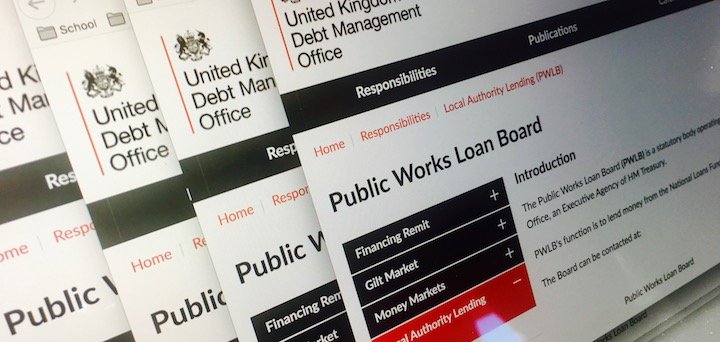
A report by the Bureau of Investigative Journalism has started a controversial discussion regarding UK councils and their ongoing investment in the property market. Figures show that the amount of money invested in property by UK councils has increased six-fold since the 2013/14 tax year. How are they funding this investment? Debt of course…..
Access to cheap finance
Using the government body known as the Public Works Loan Board (PWLB), councils across the UK have access to low interest loans. When you consider that the Spelthorne Council has an annual budget of just £22 million but has borrowed £1 billion you have to ask yourself, where are the affordability measurements?
Despite the fact that governments and councils across UK are very happy to preach to private investors, there are no limits as to how much they can borrow from the PWLB. Indeed, the decision regarding the level of borrowings is left to councillors and no evidence of affordability is required when borrowing funds from the PWLB. In total, more than 100 councils across the UK are active in the property market and financing this with debt.
What is the investment strategy?
We have seen investments from a BP business Park in Sunbury costing £392 million to a Tesco Extra in East Hampshire costing £38.8 million. There are also Waitrose branches, Travel Lodges as well as a B&Q store, farmland and Royal Mail depot. One council has even invested in a solar farm!
It is fair to say that councils across the UK have seen their income slashed under austerity measures introduced by the UK government. So, councils are now investing in income producing property assets which they hope to use to fund local services. In theory, borrowing significant capital at relatively low interest rates to invest in income producing assets makes quite a lot of sense. However, what happens if the property market turns down, consumer habits change and rental income is slashed?
Concerns regarding repayment
There are serious concerns that UK taxpayers will need to foot the bill in the event of council property investments taking a turn for the worse. Commercial property is historically very volatile and councils are effect taking out full mortgages when acquiring these properties. This gives extremely little “wiggle room” in the event of a downturn which could leave councils unable to cover loan repayments.
The UK government has attempted to rein in council speculation in the property market but many local authorities have ignored the warnings. We have even seen examples of councils acquiring property assets outside of their district. Surrey County Council spent £70 million on a Worcestershire shopping centre, Broxbourne Council spent £17 million on a Tesco site in Grimsby and Torbay Council acquired a warehouse 230 miles away in Kent.
Concern and confusion
It will surprise many to learn that councils are invested in property outside of their area. Property speculation to create a strong income stream does have its attractions, although there are downsides, but investing for the benefit of other areas of the UK, strange. Ultimately, we may look back in a decade and deem these investments to be opportunistic and extremely successful. However, in light of recent volatility in the UK property market, especially commercial/retail, councils are taking a big gamble with taxpayer’s money. In the event of a loan default it is no surprise to learn who will foot the bill, yes, taxpayers.

